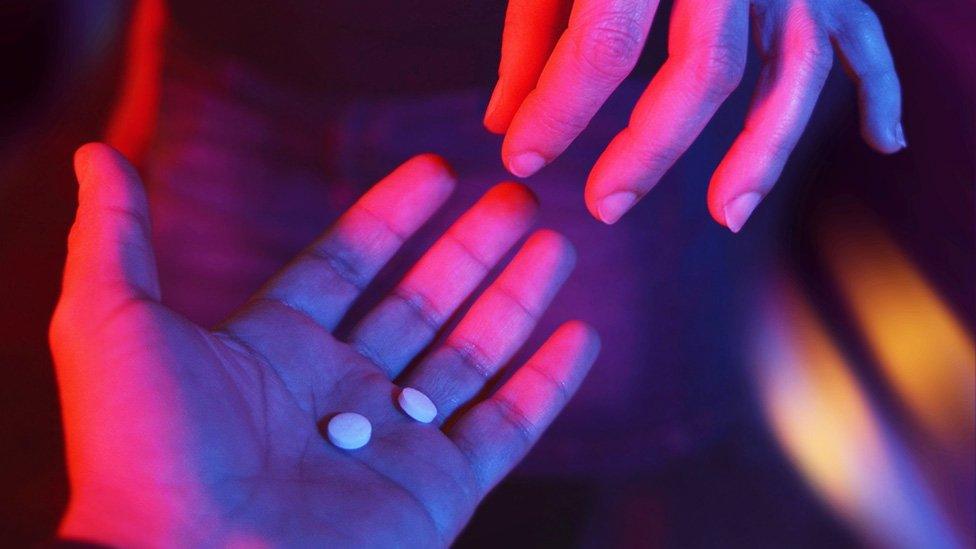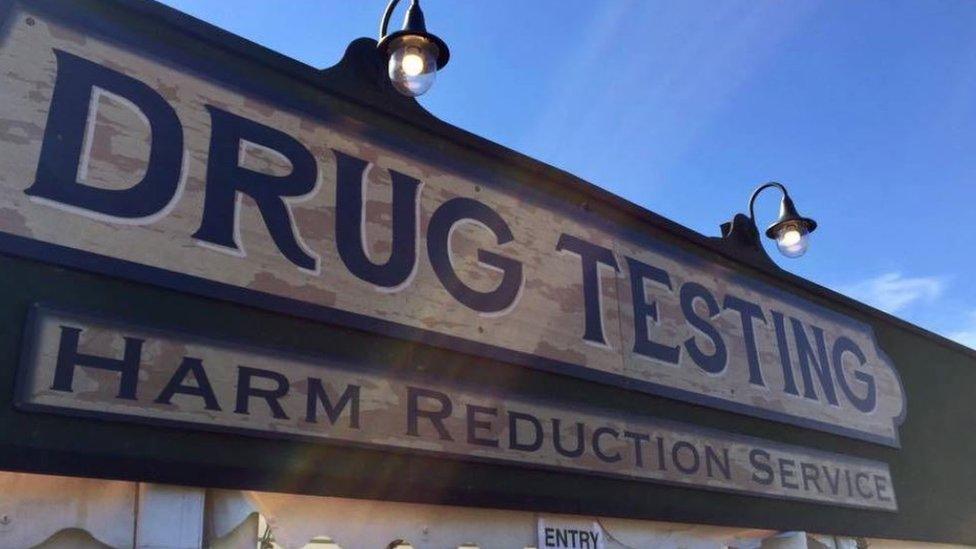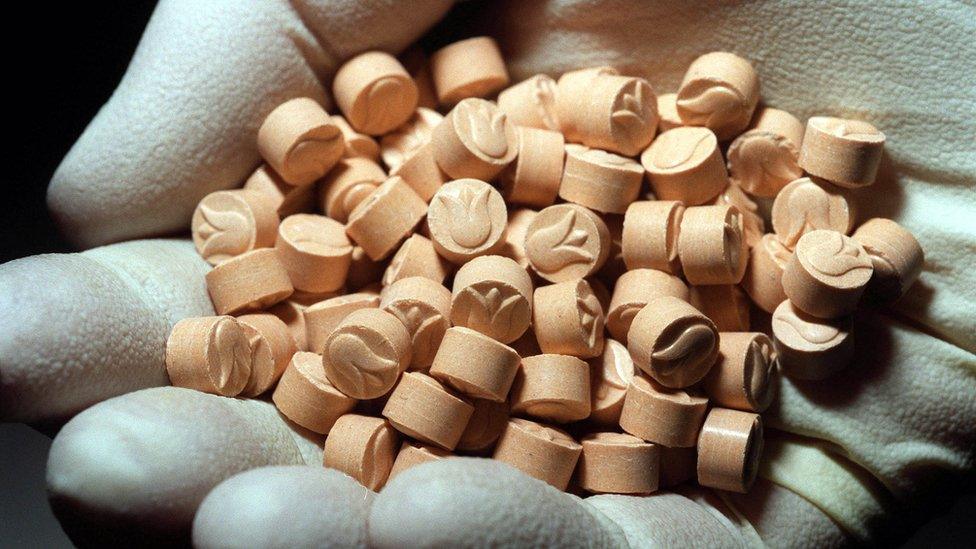Clubbers need 'access to drug safety testing'
- Published

Clubbers need access to places to test their drugs in UK towns and cities - especially at night, according to a new report.
Campaign group The Loop says deaths related to ecstasy and cocaine are at a record high.
It believes many venues aren't equipped to deal with drug use but critics argue open testing encourages people to take illegal drugs.
The Home Office says: "No drug-taking can be assumed to be safe."

The Loop piloted similar testing at the Secret Garden Party and Kendal Calling festivals in 2016.
People could drop off their samples and find out what they had. The drugs were also graded in terms of strength, so they would know the potency.
Part of the successful pilot at festivals included the drug policy of '3Ps' - Prevent, Pursue and Protect - the report recommends rolling this out on a wider scale.
The Loop says it's now discussing the possibility of drug safety testing in several UK towns and cities. It also plans testing at a greater number of music festivals this year.
"In order for this to work it requires police forces and councils to work together," says Professor Fiona Measham, who co-wrote the recommendations.
"Clubs risk closure if there is a drug-related death but they also risk closure if they attempt to introduce harm reduction measures."
She tells Newsbeat the evidence from UK festivals is that if the drugs are tested, it reduces the amount of people going to hospital and the amount of contaminated drugs being bought and sold.
"It's all about protecting the customers and venues."

Labour MP Jeff Smith, who is on the parliamentary group that looks at changing the law, says: "Keeping people safe requires more than zero-tolerance rhetoric around drugs and out-dated licensing laws.
"This report offers credible and tested solutions to help protect people.
"I hope that venues, local authorities, and the government will work together to make these recommendations a reality."
The scheme has had its critics who say it encourages people to experiment with illegal substances, but evidence from countries where drug testing is common shows people are safer if drugs are tested.
It means people don't take drugs that contain potentially dangerous or fatal substances.
The report comes as ONS statistics show, external cocaine-related deaths in England and Wales have more than tripled between 2011-2016, going from 112 to 371.
In Scotland, they've quadrupled, from 36 to 123.

The report was written by The Loop, Volteface, Durham University and The All Party Parliamentary Group for Drug Policy Reform.
The Home Office says: "No drug-taking can be assumed to be safe and our approach remains clear. Drugs are illegal where there is scientific and medical evidence that they are harmful to health and society.
"We must prevent drug use in our communities and help dependent individuals to recover, while ensuring our drugs laws are enforced."
You can find help and support on drink and drug use via these BBC Advice pages.
Follow Newsbeat on Instagram, external, Facebook, external and Twitter, external.
Listen to Newsbeat live at 12:45 and 17:45 every weekday on BBC Radio 1 and 1Xtra - if you miss us you can listen back here.
- Published4 May 2016

- Published3 July 2017

- Published22 May 2017
